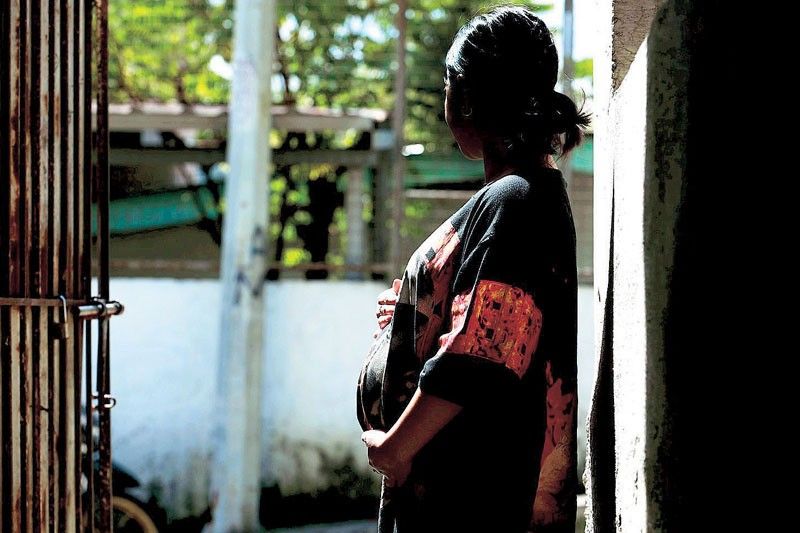Sex education ‘very, very, very important’

Marcos backs CSE in schools to address teen pregnancies
MANILA, Philippines — Sexuality education is necessary to address the rising cases of teenage pregnancy in the country, President Marcos said yesterday.
Marcos made the remarks when asked for his views on the controversial Comprehensive Sexuality Education (CSE) being implemented by schools pursuant to Department of Education Order 31.
“What does sexuality education mean? You’re a male or a female, that’s it,” the President said in an interview in Leyte.
Marcos cited the increasing numbers of adolescent girls and young women giving birth and the rising cases of sexually transmitted diseases in the country.
“These are all of the things that we need to address. And so, the teaching of this in our schools is very, very, very important,” the President said.
“And to make young people, especially, knowledgeable about what are the options that are truly available to us, and what the consequences are – what the consequences are of having a child too soon, too early,” he said.
“Children having children is a very difficult situation for both the child and the parent,” the President noted.
Marcos said education is the most important service that government can provide to the people.
Education Secretary Sonny Angara has assured the public that its approach to sex education in public schools responds to the needs of students in a “culturally sensitive” way.
The CSE is a framework promoted by United Nations agencies like the United Nations Educational, Scientific and Cultural Organization, the United Nations Children’s Fund and the United Nations Population Fund.
It focuses on a sexual rights-based and inclusive approach to help younger people make safe and responsible choices.
However, former education secretary Leonor Briones has expressed her opposition to the mandatory implementation of CSE in public schools amid pending Senate Bill 1979 which aims to adopt the CSE framework of the Department of Education (DepEd) in order to address teenage pregnancy.
Speaking to some local reporters in a video posted on X (formerly Twitter), Briones said she is “worried” about the mandatory aspect of the bill as it might trample upon one’s culture, faith and customs.
“I’m really worried that they might make it (CSE) mandatory without regard for culture, for faith, for practices. And I can’t accept that we will have international standards on this issue,” Briones said in English and Filipino.
“Because not only are there Christians but peoples of other faiths who are not necessarily as enthusiastic about making this law or bill mandatory. I’m worried about the mandatory aspect,” she added.
Meanwhile, Benjo Basas, chairman of public teachers’ group Teachers’ Dignity Coalition (TDC), said their members have yet to undergo any training for the implementation of the CSE, contrary to statements made during a hearing in Congress last Wednesday that several public school teachers have already undergone a five-day training on the delivery of CSE lessons.
“We have not heard of any such training. We haven’t talked about it. I think if there is such, at least one member of the TDC could have been there,” Basas said.
Oversight
In Congress, Pasig Rep. Roman Romulo said yesterday the House of Representatives will strictly use its oversight function once the CSE is enacted into law.
“If the schools will implement it, we really want to impose Congress’ oversight function to make sure that its implementation is right,” Romulo said over Radyo Pilipinas.
Romulo, however, said that there is no existing law yet on CSE.
“DepEd clarified that their basis is not any CSE act. Their basis is the RH (Reproductive Health) law,” Romulo said.
Cibac party-list Rep. Eddie Villanueva on Thursday strongly opposed the implementation of the CSE, saying that the inclusion of school children as young as four years old in the CSE program will only promote “early sexualization.”
“Do you want people that you do not know, you do not know the character, to teach your children about sex, porn literacy, masturbation, oral sex and anal sex?” he asked.
Ousted chief justice Maria Lourdes Sereno also raised “red flags” in the inclusion of CSE in DepEd’s curriculum.
“This is why we sounded the alarm – because these international standards, which were referenced in both the bill and DepEd Memo 31, are not only ineffective in addressing the problem, they have harmful effects on children,” Sereno said in a statement.
According to a video from Project Dalisay, under the CSE, young children will be given information on masturbation and will be taught that they have their own sexual rights.
Sereno said that while the words “childhood masturbation” do not appear in the proposed bill on adolescent pregnancy, the reference to CSE and mandating that it be taught in school could only be taken to refer to the UNESCO and WHO guidance that embody the international standards of CSE.
These, she said, discusses masturbation as normal, not harmful, and a topic explored at a very early age.
She urged a public discussion of the bill, which is already in the plenary in the Senate, saying that none of people behind Project Dalisay were invited to discussions about the bill and they will not be able to raise questions as the Senate tackles it.
“Our only access to make our position known is to reach out to our fellow Filipinos through different media and to legislators who are willing to give us private hearings,” she said.
‘Future-ready’ students
Meanwhile, the DepEd has vowed to provide more skills development training and information technology (IT) equipment, especially to senior high school students as part of its ongoing efforts to produce a “future-ready workforce.”
In a speech during the Annual Educators’ Congress 2025 held on Thursday, Education Undersecretary Peter Irving Corvera, on behalf of Secretary Angara, said the DepEd is set to enter into more public-private partnerships (PPPs) and to enhance its collaboration with other government agencies “in order to equip learners with the skills and tools to thrive in a fast-changing global workforce.”
“The game is changing for our learners. To remain competitive, we need to ensure their technology literacy, much like athletes mastering new skills,” Corvera said.
Thus, Corvera said, it is high time for Filipino students, especially those in SHS, to be technologically savvy as well as develop new skills.
To prepare the students, Corvera said the DepEd is focused on closing infrastructure and digital gaps through PPPs.
The DepEd recently announced its target to construct 15,000 classrooms by 2027 through the PPP scheme. Corvera said efforts are also underway to provide electricity and satellite internet access to underserved schools.
Corvera also cited the DepEd’s partnership entered into recently with Khan Academy on the provision of training programs in English, Science and Mathematics for teachers “to ensure that they are equipped with knowledge and tools to raise learning standards.”
Corvera said the DepEd has also reaffirmed its partnership with the Technical Education and Skills Development Authority “to deepen industry ties, enhance work readiness courses and facilitate national certifications.” — Jose Rodel Clapano, Elizabeth Marcelo, Daphne Galvez
- Latest
- Trending





























